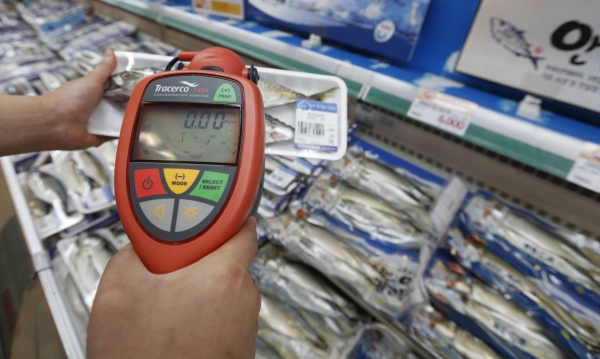
The World Trade Organization (WTO) ruled in favor of the South Korean government’s ban on imports of some Japanese fishery products after the 2011 Fukushima nuclear disaster, reversing an earlier decision against the restriction.
After the terrible Tohoku earthquake and Fukushima nuclear disaster which happened in 2011, South Korea imposed a ban on 50 species of seafood from Fukushima and seven other prefectures nearby in order to prevent the hazard of radioactive contamination.
The Korean government strengthened the restriction on Japanese products on Sept. 6, 2013. The Korean government widened its ban from partial products to all seafood from the eight prefectures. Also, radiation examination on fishery product and livestock products from the whole prefectures of Japan was tightened.
Arguing that South Korean restrictions were too strict, Japan complained to the WTO over the restrictions, which covered 28 species of fish and mollusks in August 2015. Japan claimed that radiation levels were safe and that many other nations, including the United States and Australia, have lifted or eased Fukushima-related restrictions.
The Korean government’s claim that Fukushima fishery is more dangerous than that of other regions was not accepted due to the lack of scientific evidence. In February 2018, the dispute settlement panel claimed that, based on ‘Sanitary and Phytosanitary measures’, the test requirements against Japan and complete ban were more trade-restrictive than necessary. It violated WTO rules barring measures that ‘arbitrarily or unjustifiably discriminate’ between members. The panel recommended lifting the restrictions on the 28 species of fish and mollusks as requested by Japan. Korea appealed the decision in April that year.
This time, the appellate body focused on controlling the potential risks the environment poses to food following the Fukushima nuclear accident while the WTO dispute panel focused on the hazard of the product itself in the first trial. It worked in Korea’s favor and finally the WTO, on April 26, concluded that South Korea’s measures were not overly restrictive and did not unfairly discriminate Japan. The appellate body invalidated the conclusion of a dispute settlement panel as it erred in interpretation and application of WTO rules on food safety.
The Korean government welcomed the verdict, announcing that it will maintain the current import ban on fishery products from Fukushima and surrounding prefectures. Yoon Chang-ryeol, head of the Office for Government Policy Coordination, said in a press briefing that the ban will remain in place unless it is officially proven that there is no problem with importing fishery products from the affected areas.
Minister of Agriculture, Forestry and Fisheries of Japan, Takamori Yoshikawa reiterated that Japanese food products are safe. He told a news conference that “It is regrettable when I think about recovery efforts made by those affected by the disaster.” Foreign Minister Taro Kono told South Korean Ambassador Lee Su-hoon that Japan will continue to push for scrapping measures in the bilateral talks.
The ruling can also have an impact beyond South Korea and Japan. Japan tried to ease up other counties’ restriction on Japanese food product through a victory in this trial. However, it failed and may work the opposite way. For example, China, which started easing its restrictions on importing Japanese food items last year, may become more cautious in its further easing action.


